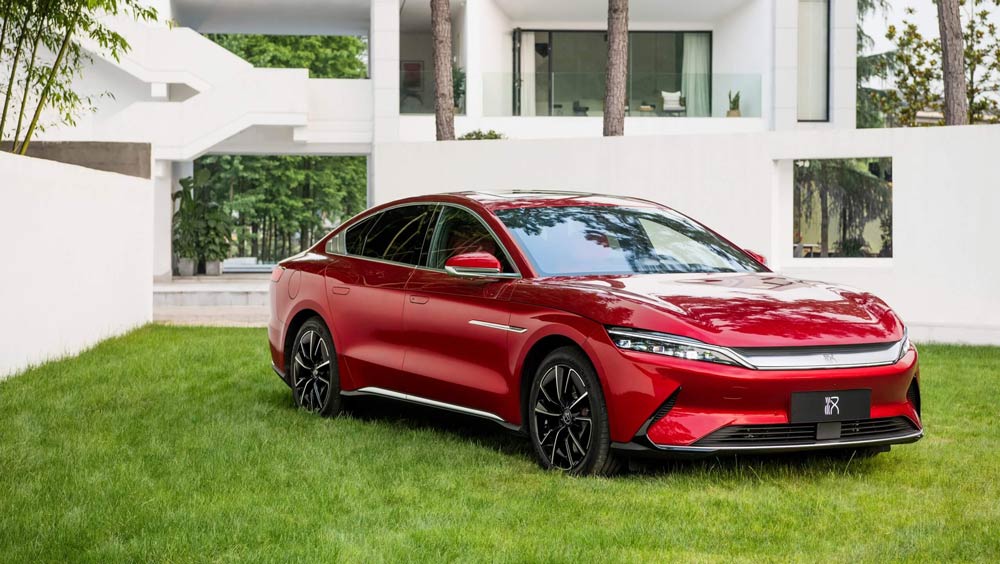Chinese electric vehicle (EV) behemoth BYD has defied market expectations by achieving a remarkable milestone in August. Despite a broader slowdown in the Chinese EV market, BYD reported a record number of passenger vehicle sales during the month, showcasing its resilience and adaptability in a challenging economic environment.
BYD’s August sales figures revealed a significant surge, with a 30% year-on-year increase, totaling an impressive 370,854 passenger cars sold. Notably, the sales of hybrid vehicles outpaced those of battery-only cars, with a notable 48% growth in hybrid-powered vehicle sales, capturing nearly two-thirds of BYD’s total sales for the month.
In contrast, several emerging new energy vehicle startups experienced a decline in deliveries in August. Li Auto, recognized for its range-extender vehicles, reported a slight decrease in deliveries to 48,122 units from the previous month’s record of 51,000. Similarly, Aito, leveraging Huawei technology, saw a dip in deliveries, delivering 31,216 cars in August, down by over 10,000 vehicles from the prior month.
Nio, another prominent player in the Chinese EV market, delivered 20,176 cars in August, maintaining its performance above the 20,000 mark for a fourth consecutive month. Xpeng also showcased a strong performance with 14,036 car deliveries, marking its best month of the year thus far.
BYD’s international expansion efforts have been noteworthy, with the company selling 31,451 cars overseas in August, bringing the year-to-date total to 264,869. If BYD sustains its monthly overseas sales pace, it could potentially sell close to 400,000 cars outside China by the end of the year, highlighting its growing global presence.
Furthermore, Xiaomi, primarily known for its smartphones, continued its foray into the EV market by delivering more than 10,000 cars in August for the third consecutive month. The company’s commitment to delivering 100,000 units of its SU7 electric sedan by the end of November underscores its ambitious growth strategy in the EV sector.
In a bid to undercut Tesla and expand its global footprint, Zeekr, a Geely-backed company, announced plans to launch its first SUV at a price lower than Tesla’s Model Y. With aspirations to deliver the SUV worldwide by the year’s end, Zeekr aims to disrupt the market and carve a niche for itself in the competitive EV landscape.
The overarching success of BYD and other key players in the Chinese EV market signifies the industry’s resilience and potential for continued growth despite prevailing challenges. As the EV sector continues to evolve and innovate, these developments underscore the dynamic nature of the market and the fierce competition among industry players vying for market share and consumer attention.











